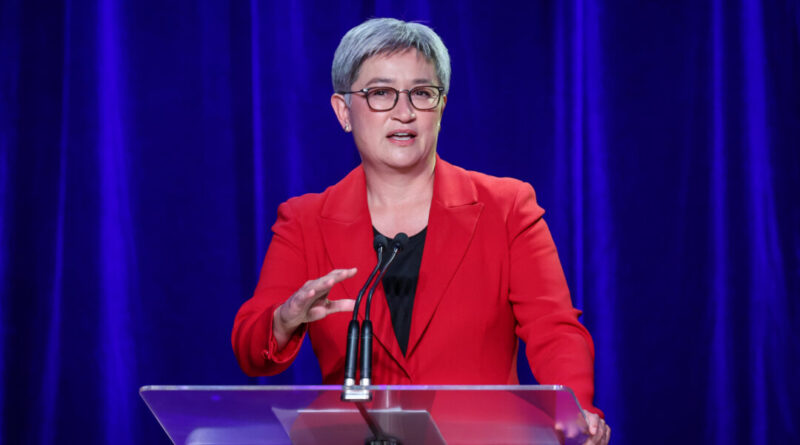Wong Capitalizes on Community Outrage Following Liberal Party’s ‘Chinese Spies’ Remark
“The concerns of the Australian-Chinese community regarding the Liberal Party’s stance on various issues are significant,” stated Penny Wong.
Penny Wong, the Foreign Affairs Minister, remarked that the Coalition struggled to connect with voters of Chinese descent, as evidenced by considerable swings toward the Labor Party in multiple electorates with large Chinese Australian populations.
For instance, in Sydney’s Bennelong, Labor experienced a 13.6 percent increase in first preference votes, while the Liberal Party saw a 5.3 percent decline.
In Reid, Labor noted a 7.5 percent rise in first preference votes compared to a 5.9 percent drop for the Liberals.
Significant swings were also noted in Melbourne’s Menzies, Aston, and Chisholm, where Labor candidates are currently in the lead, while Brisbane’s Moreton recorded a 5.2 percent primary vote shift toward Labor and a 7.5 percent shift away from the Liberal Party.
During an interview with the Australian Broadcasting Corporation, Wong intensified her critique of the Liberals, referencing comments made by Liberal Senator Jane Hume on television, which suggested that “Chinese spies” were distributing flyers for Labor Housing Minister Clare O’Neil.
“I found it remarkable for Jane Hume to assert that Labor volunteers who are Chinese were spies,” she commented.
“This reflects a recurring theme in comments and actions by the Liberal Party that justifiably concern Chinese Australians,” she noted.
The minister also claimed that the shift towards Labor in critical electorates clearly indicated the views of the Chinese community regarding the Liberals.
Wong previously capitalized on Hume’s remarks to entice voters.
Just days before election day, the senator utilized various Chinese-focused social media platforms like WeChat and RedNote to assert that the Liberal Party was questioning their loyalty.
Wong chose not to comment on whether her advertising efforts had given Labor an edge in electorates with substantial Chinese populations.

A Liberal Party election night event in Brisbane, Australia, on May 3, 2025. Dan Peled/Getty Images
CCP Influence Remains a Concern
Meanwhile, the influence of the CCP in the Australian election has been a persistent topic.
A video showed Chinese campaign volunteers from the Hubei Association, indicating that their involvement was necessary due to the alignment of Ryan’s values with those of the Chinese community.
The Hubei Association is affiliated with the CCP’s United Work Front Department, which aims to wield influence over individuals and groups outside of China.
While Ryan expressed uncertainty about the video’s accuracy, she conveyed her appreciation for the support from the Chinese community over the past three years.
“I can’t comment on the video’s interpretation, but no one has been forced to volunteer for me; I’m thankful for those who have stepped up to support my campaign,” she remarked.
In Bennelong, Yan Zehua, a former executive vice president of the Australian Council for the Promotion of the Peaceful Reunification of China (ACPPRC), was also noted wearing a Liberal campaign shirt while campaigning alongside Liberal candidate Scott Yung near an early voting site in April.
Yan was reportedly coordinating a volunteer team for Yung on social media.
The ACPPRC was deemed a “foreign government-related entity” by the Attorney-General’s Department under the Foreign Influence Transparency Scheme Act 2018 in 2023.
This organization has historical ties to the CCP’s United Work Front.

Opposition Leader Peter Dutton (L) campaigns with local Liberal candidate Scott Yung (M) in Sydney, Australia, on April 28, 2025. Dan Peled/Getty Images
Chinese Community’s Attitude Towards Liberals
In the 2022 federal election, there was a notable shift toward Labor among Chinese Australian voters in several key areas, contributing to the party’s success.
Reports suggest that the criticisms of the CCP’s COVID-19 response by then-Prime Minister Scott Morrison led many Liberal supporters to change their votes, as they felt his actions intensified anti-Chinese sentiment in Australia.
According to this survey, 64 percent of the 3,000 participants indicated a preference for Labor in the upcoming election, while only 27 percent expressed support for the Liberals.





